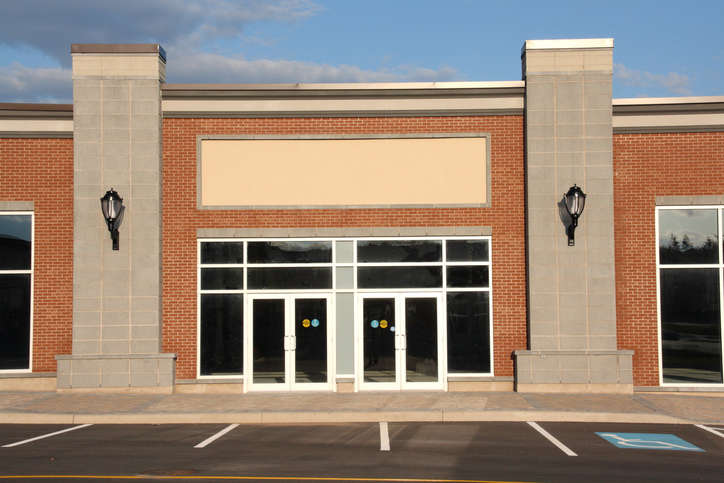 In a time when layoffs and foreclosures are widespread, your firm may be forced to manage vacant commercial real estate. The insurance risks and liabilities associated with owning vacant property can be extensive, and to ensure you are adequately protected, it is important to know these risks. In addition to purchasing comprehensive insurance coverage, there are numerous preventive strategies for maintaining vacant properties to reduce risk and liability.
In a time when layoffs and foreclosures are widespread, your firm may be forced to manage vacant commercial real estate. The insurance risks and liabilities associated with owning vacant property can be extensive, and to ensure you are adequately protected, it is important to know these risks. In addition to purchasing comprehensive insurance coverage, there are numerous preventive strategies for maintaining vacant properties to reduce risk and liability.
In reality, vacant properties present a unique set of risks that must be managed effectively to avoid costly losses at a time when money may already be tight for building owners. Vacant buildings might be unoccupied, but they should not be left unattended. Evaluate the following risks on a regular basis to avoid expensive losses.
Download Printable Article (PDF) >>>
Risks Associated with Vacant Commercial Real Estate
There are a host of risks and concerns associated with owning vacant property. Vacant buildings are an obvious target for theft, trespassing and vandalism. For example, the rising cost of copper has given rise to an increase in the theft of copper pipes from vacant properties. In addition to any loss or property damage that may occur, keep in mind that the owner of a property can be held liable for criminal activities or accidents that take place on the premises.
In addition, vacant properties are susceptible to undetected damages, such as fire, water damage, electrical explosions, wind or hail damage, and mold. A study by the U.S. Fire Administration shows that approximately 30,000 fires occur every year in vacant buildings, costing $900 million annually in direct property damage. Many of these incidents occur in vacant buildings due to small, undetected maintenance issues; someone in an occupied building would have recognized and handled the problem before it caused a larger loss.
In certain facilities, there may also be environmental hazards that the owner needs to consider. Facilities that are used to store chemicals or other pollutants should ensure that such materials are removed or securely stored—the owner may be held liable for any hazardous materials that contaminate groundwater or other nearby natural resources. Also, underground fuel tanks present serious challenges and thus should be frequently and carefully inspected by professionals.
Other Ways to Mitigate Risk to Vacant Commercial Real Estate
In addition to extending coverage, there are some simple steps that owners of vacant property can take to limit their risk and liability.
Prevent vandalism: Notify local authorities of vacated properties so they can watch for criminal behavior. Maintain an “occupied” appearance to the property—mow the lawn, have mail forwarded or picked up regularly and install light timers and/or a security system.
Limit liability: Make sure the property is free from significant hazards (e.g., broken railings or steps, broken windows) that could cause injuries to anyone on the property—this could include police officers, maintenance workers, firefighters or even trespassers.
Avoid damage: Performing regular maintenance on the property can decrease the odds of sustaining damage. Make sure the heating system and chimney are cleaned and inspected regularly. Have the plumbing system winterized to prevent frozen pipes.
Periodically inspect roof, insulation, attic, basement, gutters and other areas of the property for any necessary repairs, mold, damage or other problems. Consider installing smoke detectors that are tied to a centrally monitored fire alarm system so the fire department will be notified in the case of an alarm. Remove all access material and combustibles from in and around the building.
Insuring Residential Properties
Most insurance companies include a clause that the homeowner’s insurance will expire if a home is left vacant for more than 30 or 60 days. This leaves the property owner financially vulnerable for all previously noted risk. However, many insurance companies do offer vacant property insurance, also known as vacant building insurance or vacant dwelling insurance.
Unoccupied Commercial Building Insurance
Vacant commercial buildings are more difficult to insure because they present greater risks, including increased chance of theft, malicious damage and burst pipes. It is important to disclose all relevant facts when seeking insurance, including the reason for the property’s vacancy and a schedule of any work to be done on the property.
Because of the increased risks and liability associated with a vacant property, these types of insurance tend to be costly—ranging from one and a half to five times the cost of a property insurance policy. It is important to look beyond the price and consider the suitability and comprehensiveness of the coverage being purchased.
The contents of this article are for informational purposes only and none of these materials is offered, nor should be construed, as legal advice or a legal opinion based on any specific facts or circumstances.



